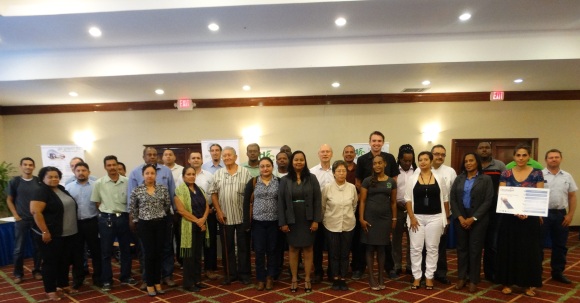There is a set of African countries whose economies have grown faster than the rest of the continent in recent years and show potential for above average growth into the future. Six of these countries have been dubbed African Lions by Haroon Bhorat and Finn Tarp in there recent book “Africa’s Lions: Growth Traps and Opportunities for Six African Economies.” The book was the subject of a panel discussion held recently at the Brookings Institution.
WHO ARE THE AFRICAN LIONS AND WHY?
The six African Lion economies are Ethiopia, Ghana, Kenya, Mozambique, Nigeria, and South Africa. The list includes Africa’s two largest economies—Nigeria and South Africa. These two along with Kenya and Ghana are also four of the five KINGS countries, so named by Ghanaian tech entrepreneur Eric Osiakwan for their leadership in Africa’s technology sector. Ethiopia, Africa’s second most populous nation has dipped a toe into light manufacturing. Mozambique is a potential agricultural powerhouse.
WHY HAVE THE LIONS NOT PERFORMED BETTER?
Poverty is down but not enough and poverty reduction has been uneven across the continent. Much of the poverty reduction has been due to strong commodity prices and natural resource imports by China. This type of economic growth does not reduce poverty by as much as in other emerging economies where more of the growth is driven by industrial activity and higher value exports.
In other words, as we all know African economies, including the African Lions suffer from excessive dependence on natural resources. They have been slow to industrialize, and slow to move up the value chain into higher productivity sectors which create more and higher paying jobs. While there may be inequities in the global trading system that work against them, the biggest obstacles blocking African productivity are more internal than external—they include business governance, quality of institutions, and strength of human capital.
HOW WILL THE LIONS TAKE AFRICA TO THE NEXT LEVEL ECONOMICALLY?
The issues of productivity and natural resource dependence are well known and have been hanging out there for decades. It was evident by the mood in the audience at Brookings that Africans are increasingly dissatisfied and are looking for new solutions!
Today’s challenges cry out for innovative new approaches and Africans must lead the way. The West—and the East can help. The challenge is big enough that the combined efforts of business, non-profits & foundations, academia & think tanks are needed. The West, and for the US in particular should beef up their efforts in 3 ways:
1. Engagement
American industry and American goods and services are generally well liked in Africa. But American business has been very much on the sidelines of African growth and development. Americans need to be present on the ground, even when there is not a deal immediately on the table. There have been a few good examples:
- Mark Zuckerberg’s recent visit to Nigeria and Kenya. There to explore the technology and innovation sector in Africa, he wound up investing in a Nigerian software developer.
- General Electric is making significant investments in the power sector in several countries, making use of the US government’s Power Africa initiative.
- The Case Foundation, lead by Steve and Jean Case was a major supporter of this year’s Global Entrepreneurship Summit in Nairobi
There are resources that can help such as Corporate Council on Africa , certain accounting, legal and consulting firms, and a cadre of US trained professionals with deep experience and relationships in African business. Time to put them to work!
2. Training & Capacity Building
- Management Training. In addition to making traditional business education available to more students, business and academia should make available advanced disciplines such as project management, quality management, and supply chain logistics as applied in an African context.
- Innovation. Many western companies are using training programs that instill a culture of innovation. African business can use similar training to build on recent successes like M-Pesa and gain a competitive edge in the global marketplace.
- Compliance. In order to become a productive member in a global supply chain, African companies like others around the world must be compliant with global standards designed to prevent corruption, maintain labor and environmental standards, and regulations specific to certain industries like financial services.
3. Financial Investment
With significant engagement and capacity building, comfort levels rise on all sides and perceptions of risk can change. Investments specifically linked to these efforts become attractive to private capital.
Deals designed to benefit from growth in consumption and from inclusion in global supply chains will provide significant, reliable returns to investors. So far there has been a lot of interest and a lot of dancing around. It’s time to pull the trigger!
